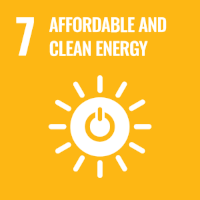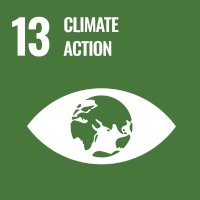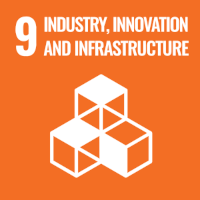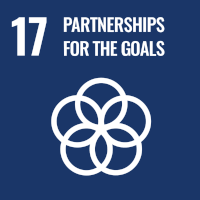Welcome to the homepage of the Advanced Functional Materials and Devices (AFMD) Group and our Advanced Solar Lab Oxford. The topics of our research is an emerging solar cell technology that already now creates only a fraction of the greenhouse gas emissions of silicon solar cells, the incumbent solar technology, and has the potential to become the cheapest form for providing electricity globally. Our solar cells are based on abundant non-toxic raw materials, can be made light like cardboard, in different colours (green, blue, red etc.) and flexible such they can be rolled up like a newspaper and, at the end of their lifetime, pose no waste issues. We focus on the research that is needed to make this technology successful in a commercial environment. In the end, that is the real-world impact our team is aiming at.
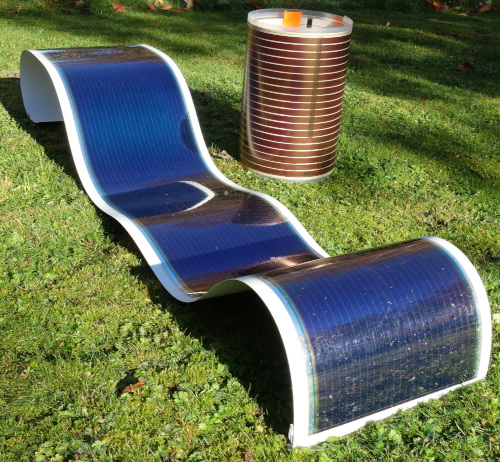
The solar cells developed in our laboratory are not based on silicon, the material of most solar cells currently sold, but on organic semiconductors. Many people will have used organic semiconductors without knowing it: displays made from organic light emitting diodes (OLEDs) use organic semiconductors and are already in more than 50% of all mobile phones currently sold. In an OLED-display, electricity (usually supplied by a battery) is converted into light by organic, i.e. molecules consisting primarily of carbon and hydrogen atoms. In an organic solar cell the process is the other way around: light is efficiently absorbed by organic molecules and converted into electricity that can then be stored in a battery, or go directly into the electricity grid.
Organic solar cells can be easily made on large areas with inexpensive fabrication methods (in our case vacuum deposition similar to the one doing metal coatings on crisp bags) such that they can be scaled fast and to those dimensions needed to significantly contribute to the world energy supply. They are currently close to commercialisation and we work towards enabling their large roll-out.
Our funding comes from the following sources (thanks!) and the project details can be found in the menu on the left hand side. 



The four Sustainable Development Goals, which we are most closely working on are:
Our webpage will be updated frequently and our GitHub Homepage, where we upload all our computer program code and technical designs in the spirit of Open Science, will grow. If you want to stay up-to-date with our research and the fun things we stumble across, please follow us on BlueSky.
On our webpage, you can can also find more detail about our group members and a list of our publications. The AFMD Group belongs to the research area "Semiconductor Materials, Devices & Nanostructures" in the "Condensed Matter Physics" Subdepartment of the Department of Physics (links below). If you have any questions, suggestions and/or are interested in a collaboration, please let us know.

